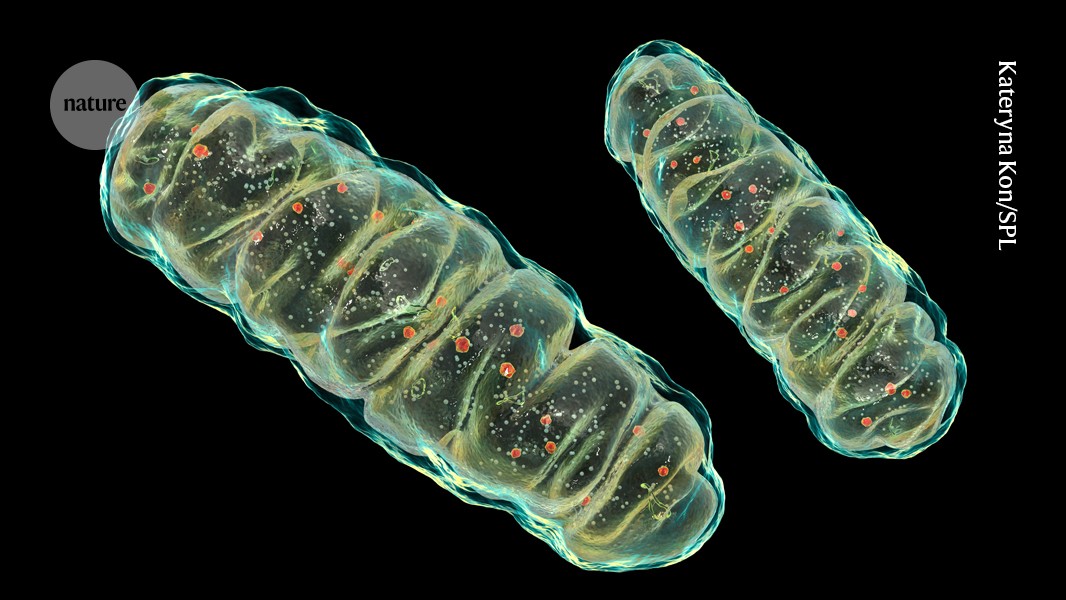
"Mitochondria are energy-producing organelles that have their own genome. When the mtDNA is damaged or disrupted, the mitochondria kick it out, sending it into the cytosol. This can occur when the relative levels of certain nucleotides in the mtDNA become too high or low. This oversupply problem, which stresses the mitochondria, can be caused by certain drugs and also seems to happen in ageing cells."
"Scientists found that, in the cells of ageing mice with kidney inflammation, strands of mitochondrial DNA (mtDNA) contained an excess of certain types of nucleotides - molecular building blocks - that can harm DNA. This excess prompted the mitochondria to eject the abnormal fragments of genetic code into the cytosol, a fluid that fills the cell, in which the free-roaming mtDNA kickstarted key inflammatory pathways associated with ageing."
Mitochondria expel fragments of mitochondrial DNA (mtDNA) that carry an excess of particular nucleotides into the cytosol, where free mtDNA activates inflammatory pathways tied to ageing. Nucleotide imbalances in mtDNA produce mitochondrial stress that triggers ejection of abnormal genetic fragments. Such imbalances can arise during ageing or after exposure to certain drugs. Mice lacking the MGME1 enzyme develop age-associated kidney inflammation and accumulate aberrant mtDNA with altered nucleotide composition. Release of tainted mtDNA into the cytosol promotes chronic, age-related inflammation (inflammageing) by kickstarting innate immune signaling cascades.
Read at Nature
Unable to calculate read time
Collection
[
|
...
]